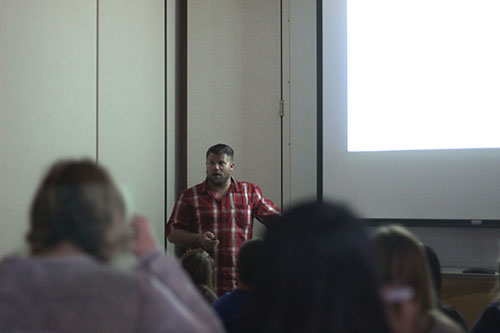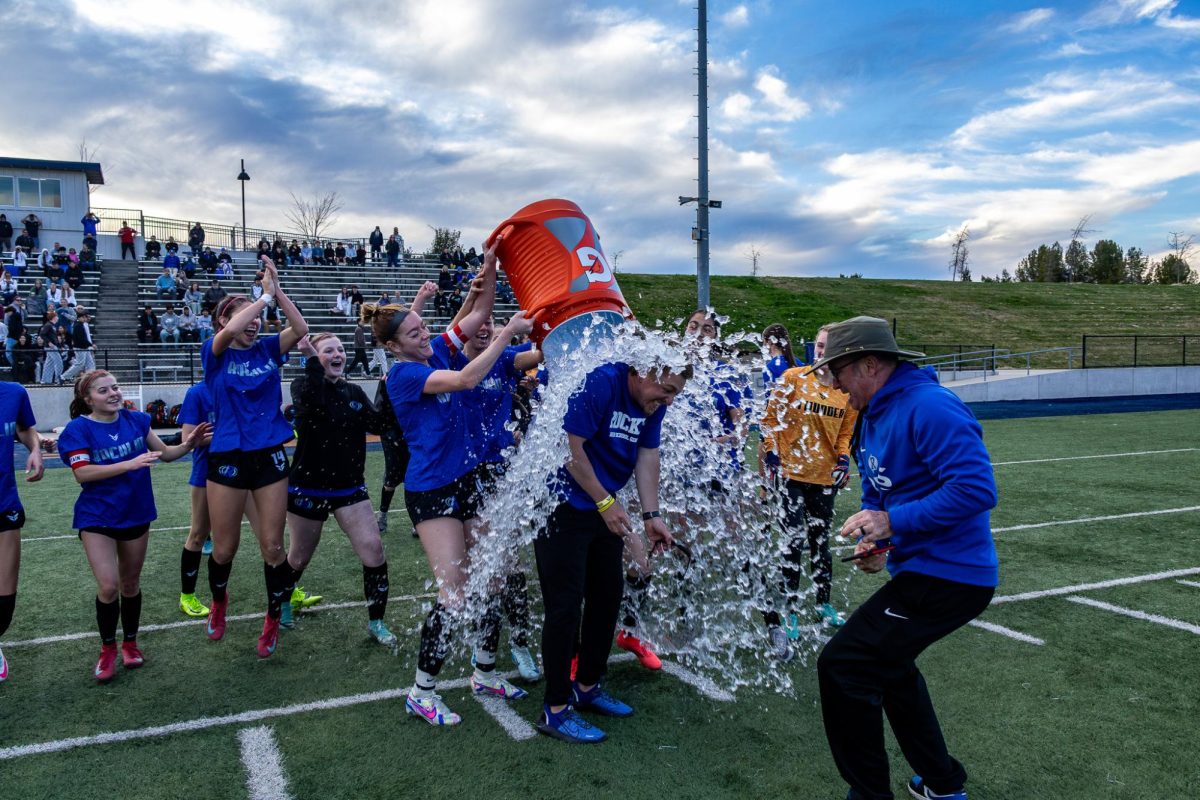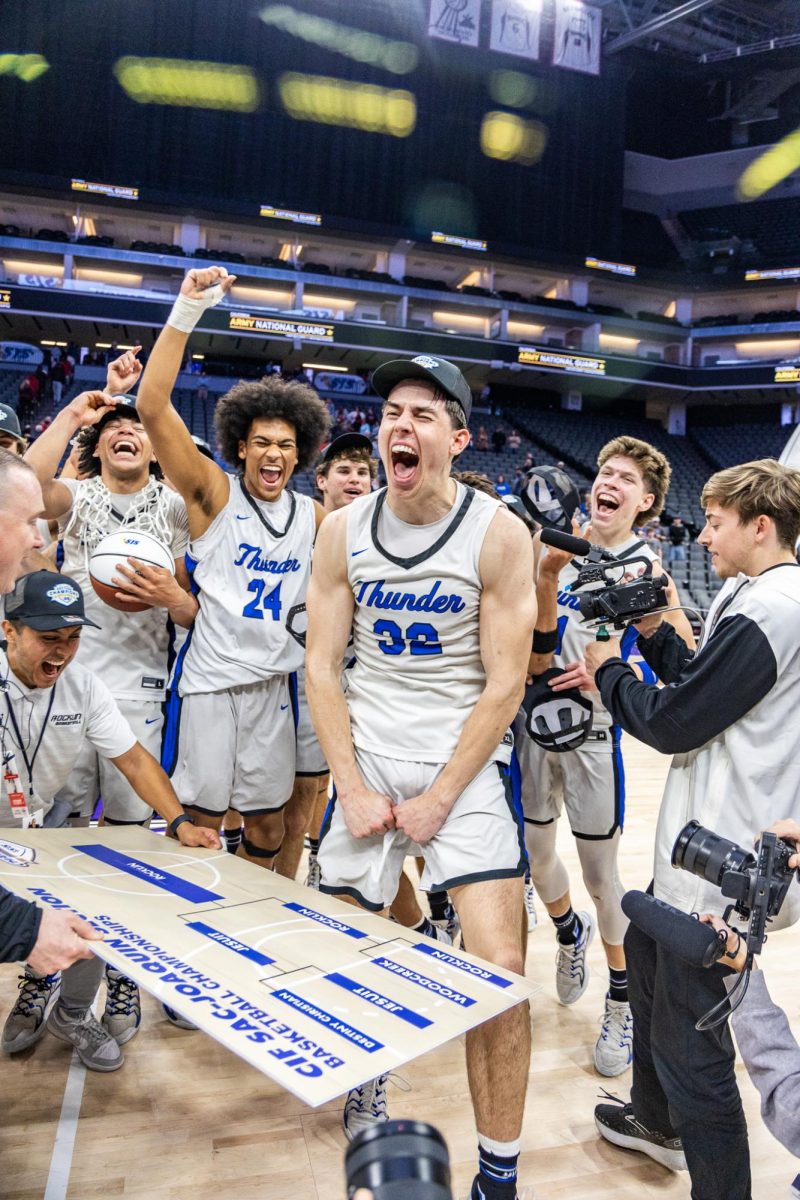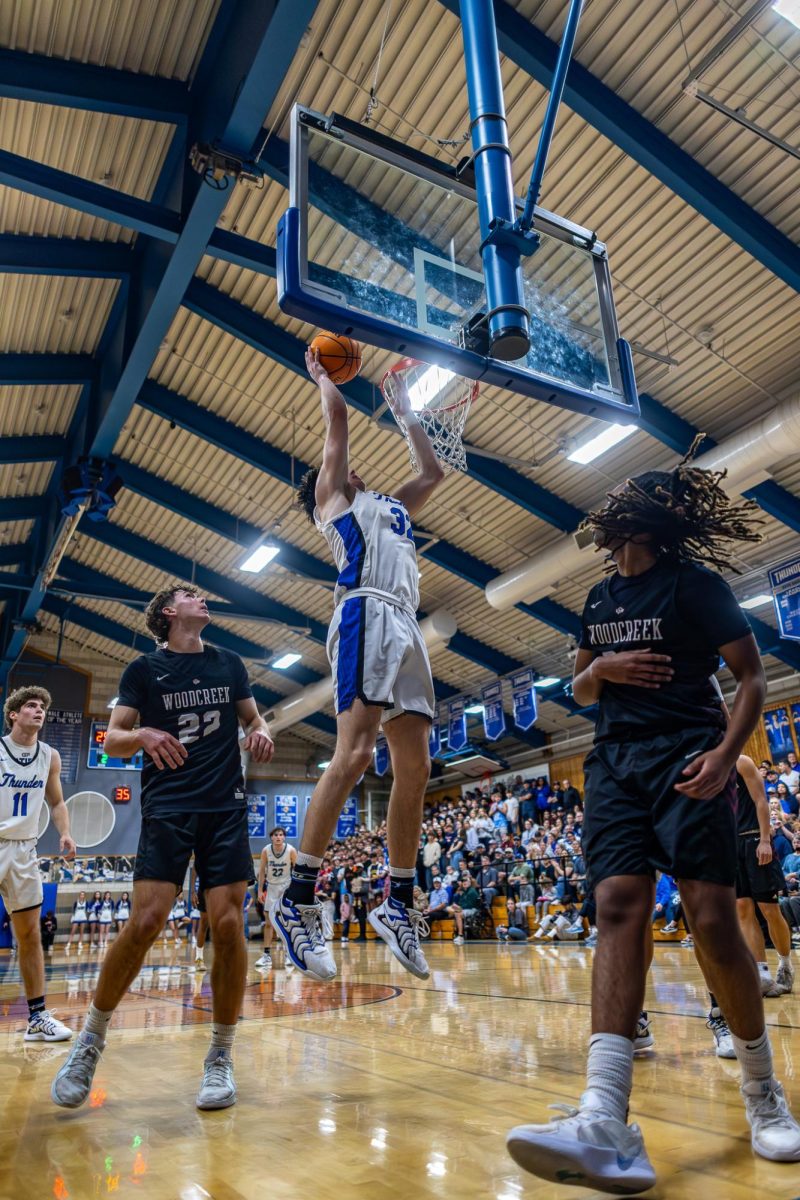Positive Psychology Will Be Positively Peachy
New class next year encourages mindfulness, personal and social empowerment.

March 13, 2017
In the past couple of years, Rocklin High School has been noticeably more involved in stress-reduction on campus. From inviting speakers like Roni Habib and ensuring students are more aware of their counselor’s availability, Rocklin is doing what it can to foster healthier lifestyles among its students. But one new class next year, called Positive Psychology, could potentially be an enormous step in continuing this trend.
What is Positive Psychology?
Positive Psychology is an unweighted, A-G approved elective that has already been introduced at other high schools, most notably at Gunn High School in Palo Alto. Included in the curriculum are units on mindfulness, creativity, self-esteem and happiness.
Mr. Eric Sturgeon, current AP Psychology teacher who will be leading the course next year, says that “unlike AP Psychology, it’s going to be very assessment-light, project-heavy and centered on fun.”
Who can take it?
Positive psychology is open to incoming sophomores, juniors and seniors, and has no prerequisite requirements. Students of all abilities, grades and interests are welcome to take the class.
“I’m not looking for a homogenous population,” says Sturgeon. “I’m looking for anyone who has in an interest in bettering themselves.”
Why take Positive Psychology?
At its core, Positive Psychology is intended to help students acquire insight into themselves and gain the skills to create a mindful, healthy lifestyle while also covering the basic principles of the subject. Students are expected to grow both academically and personally. In fact, Sturgeon’s course syllabus states that one primary purpose is the “transformation of the self towards personal and social empowerment.”
It’s no secret that many students find themselves overwhelmed in school. But even those who aren’t still struggle with self-esteem, creativity and resilience in the face of setbacks. You don’t have to be a bundle of nerves to still gain valuable knowledge and skills from this course.
With the school’s new approaches to addressing student stress on campus, it’s easy to brush aside these efforts as unhelpful or redundant. But a Positive Psychology course sounds like it will be neither of these things, and instead could be a vital tool toward self-development and adjusting to life after high school. If nothing else, it should be a relaxing, fascinating course geared toward anyone who’s interested in learning how to create a more fulfilling life.







